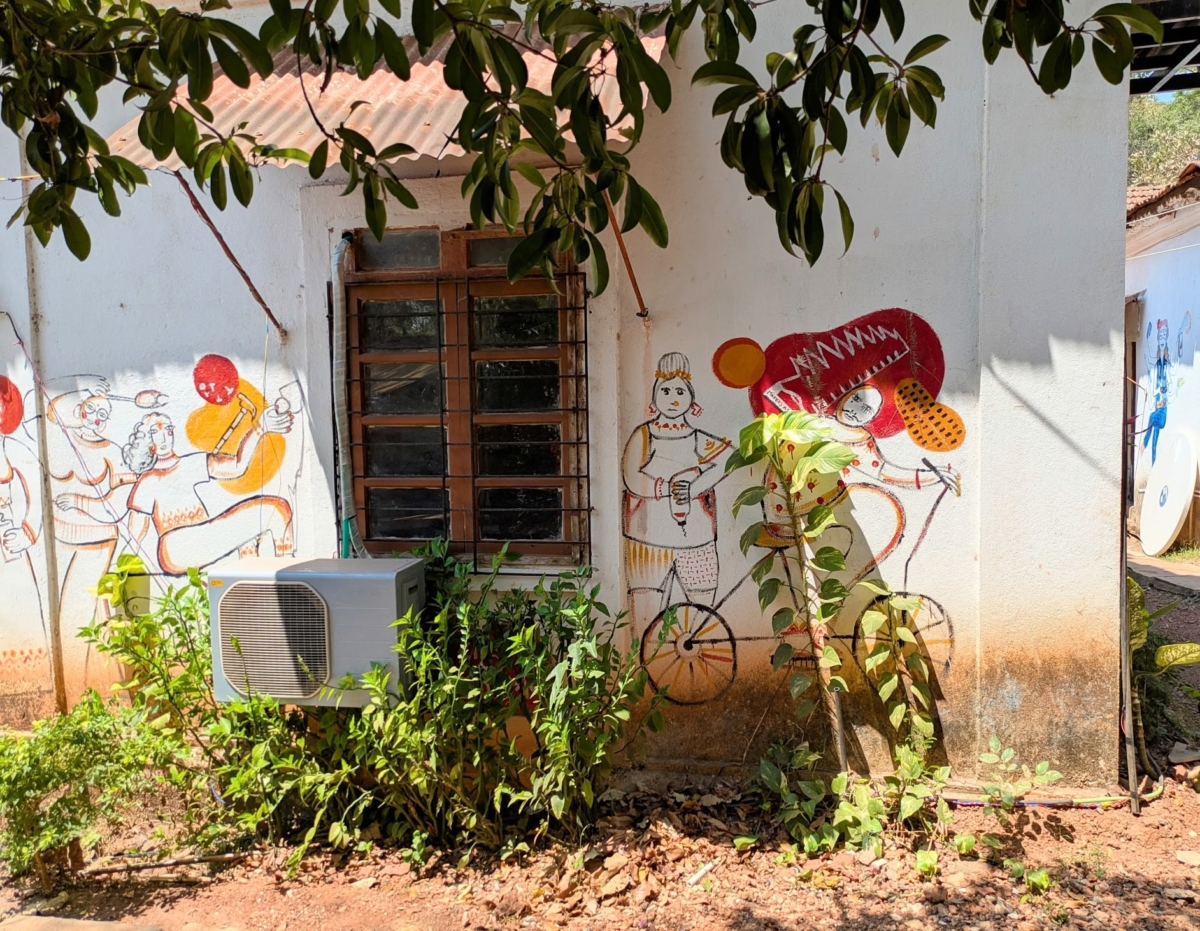The project Feral Hacking for Climate Regeneration explores how multispecies communities on the frontlines of climate emergency are applying hacking, making and other experimental platforms for material participation, in ways that transcend the limits of human-centered design. We look to hacker traditions which explore the playful (mis)use and (re)making of systems – a joyful reclaiming from the power games of Silicon Valley, and back to the diverse origins of hacking along the temporary autonomous zones of community activism. We invite dialogues between hacking and its many sister-practices, including (but not limited to) repair, commoning, cracking, debugging, shanzai, jugaad, rewilding, revival, circularity, making, unmaking, regenerating, decolonising, decomposing, indigenising and alchemising. This gentle dismantling of hegemonic technomyths (Braybrooke et al 2023; 2022; 2021; 2017) is informed by diverse becomings-with hackers of all shapes and sizes who rewild – including those “nonhuman animals that are, always already, engaged with computation” (Pritchard 2013).
The project launched in early 2025 with the community mapping workshop ‘Calling all hackers & makers for climate <3’ at the festival What Design Can Do Delhi with students from Design Village. This was followed by a research residency with communities on the front lines of the climate crisis in Goa and Delhi, hosted by UnBox Cultural Futures India and Pro Helvetia Swiss Arts Council. This builds on the legacy of the transfeminist design studio We&Us in working with local hacker, maker and circular movements for ecosocial futures globally with local networks in Europe and Asia, with partners including UK British Council, Technical University Berlin, and Superrr Lab.
The other case studies of this project are currently emerging along the swampy edges of hybrid technospheres – from e-waste mounds, compost heaps, living labs and hackerspaces, to server farms, circular economies and seed banks. In these landscapes of flux, nature and culture are not in opposition but rather co-producing agents, an evolving ramble of networks, keystone species, hardware and other fragments who come together to regenerate and rebuild. How to rewild life-affirming multispecies futures with a hacker spirit? Let’s find out.
Those interested in getting involved are welcome to get in touch with project members directly, and join the Feral Hacking newsletter which is on its way. For those in Basel, the project will also be hatching new possibilities in 2025 at HackThePromise Festival.
Works cited
- Braybrooke, Kit, Julia Kloiber, and Michelle Thorne. ‘Gentle Dismantlings: Calling All the Wild Ones [Letter from the Editors]’ DING Magazine, 2023
- Braybrooke, Kit. ‘Creative Commons, Open Access, Free- Libre / Open Source Software’. In International Encyclopedia of Anthropology, edited by Hilary Callan and Simon Coleman, 1–10. London: John Wiley & Sons, 2022.
- Braybrooke, Kit, and Adrian Smith. ‘Makerspaces and Peer Production: Spaces of Possibility, Tension, Post-Automation, or Liberation?’ In The Handbook of Peer Production, edited by Mathieu O’Neil, Christian Pentzold, and Sophie Toupin. Malden: Wiley-Blackwell, 2021.
- Braybrooke, Kit, and Tim Jordan. ‘Genealogy, Culture and Technomyth: Decolonizing Western Information Technologies, from Open Source to the Maker Movement’. Digital Culture & Society 3, no. 1 (2017): 25–46.
- Lawrence, Michael, Thomas Homer-Dixon, Scott Janzwood, Johan Rockstöm, Ortwin Renn, and Jonathan F. Donges. ‘Global Polycrisis: The Causal Mechanisms of Crisis Entanglement’. Global Sustainability 7 (2024): np.
- Harney, Stefano, Fred Moten, Judith Halberstam, and Jack Halberstam. The Undercommons: Fugitive Planning & Black Study. Wivenhoe: Minor Compositions, 2013.
- Pritchard, Helen. ‘Thinking with the Animal-Hacker: Articulation in Ecologies of Earth Observation’. #BWPWAP Transmediale 2, no. 1 (31 January 2013): 120–31.
Seed partners
- Pro Helvetia New Delhi
- What Design Can Do Festival Delhi 2025
- HackThePromise Festival Basel 2025
- Quicksand Design Studio
- Unbox Cultural Futures
- Studio We&Us
